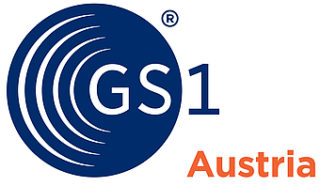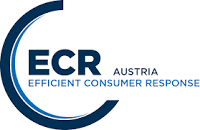Questions and answers about XRechnung in Germany

Everything you need to know about sending e-invoices to German authorities
Is your company a supplier to the German federal government or are you a contractor? If you are, then there will be an important change for your invoicing before the end of the year 2020. Federal agencies in Germany will no longer accept paper invoices, but require e-invoices instead. It is not surprising that many people affected by this are uncertain about how to proceed. We are currently studying this issue in depth and are receiving a lot of questions about it. Below, I would like to give answers to frequently asked questions (FAQ) in an effort to provide useful information about the so-called XRechnung process.
Which businesses need to switch to electronic invoices (e-invoices) for Germany? Does this affect me?
Since 27 November 2020, federal agencies in Germany will no longer accept paper invoices. After that day, only electronic invoices (e-invoices) may be submitted to these federal authorities. This affects all businesses that provide products or services to the German federal government and then issue invoices to these authorities. For invoices to get paid after the above-mentioned cut-off date, companies are required to switch to e-invoicing. We recommend that companies start making this transition now so that they will be well prepared for e-invoicing in Germany.
Are small invoices also affected by this transition to XRechnung invoices submitted to German federal authorities?
No, public contracts of up to EUR 1,000 net from German authorities are exempt from the requirement to switch to electronic invoices (e-invoices).
What exactly is an e-invoice?
Just like for paper invoices, issuers of invoices are required to provide certain information on their e-invoices. In addition, electronic invoices must include structured data so that German authorities as recipients of invoices can process them conveniently and without any system inconsistencies. Ultimately, e-invoicing saves valuable time and money for authorities and companies alike.
What does “system inconsistency” mean?
System inconsistencies occur every time digital information is turned into an analog format by printing out a document. For instance, when a business partner exports an invoice from their accounting system as a traditional PDF file and e-mails it to the invoice recipient who is not connected to EDI, the document will not include any structured data. The recipient will not be able to automatically process this invoice. In that case, invoices usually get printed. By contrast, electronic invoices in XML format can be processed immediately and the room for error is drastically reduced.
What are data in XML format? And what is an XRechnung?
In Germany, the national standard for the transmission of electronic invoices to public authorities is the so-called XRechnung standard. XRechnung is an XML-based semantic data model. Ultimately, this means that XRechnung is a special form of e-invoice. This data exchange format is a technology-neutral format that can be implemented in existing IT solutions and which is fully machine readable.
Sometimes, the German acronym ZUGFeRD is used for this. How does it differ from XRechnung?
In the case of ZUGFeRD, the XML file is embedded in a PDF file. XRechnung no longer requires a PDF file.
How do you create an XRechnung and how do you submit it to German authorities?
The biggest challenge for suppliers is to first create invoices in their accounting system, convert these to the XRechnung format, and then transfer them to the authorities. The easiest and most secure way of meeting these requirements is the fully automated transmission via the PEPPOL network (Pan-European Public Procurement OnLine) supported by all German federal authorities.
What is the PEPPOL network?
PEPPOL stands for Pan-European Public Procurement OnLine. It is an EU-wide project designed to standardize electronic procurement processes across borders. This will make it easier for businesses to participate in public bids, both on a national level and EU-wide. With PEPPOL, the entire procurement process can be performed electronically, starting with the publication of the call for tender, the award of the contract all the way to payment. The goal is for every company to be connected to every public client in the EU.
Do I have to take care of converting and submitting XRechnung invoices myself?
From a technical perspective, you can submit these invoices yourself. However, this might not be very efficient, since you would have to implement and maintain multiple transmission options on your own. The benefit offered by service providers is that they can basically bundle all widely used technical communication protocols and channels and that they also have in-depth knowledge about all legal requirements. And that not only on a national, but also on an international level. In addition, service providers will help you consolidate your processes, standardize them and optimize them on all levels. This goes from invoice export to invoice conversion and invoice validation all the way to archiving. As a result, there will be fewer mistakes, increased efficiency, and lower costs.
Where can I get competent assistance if I have more questions about e-invoice or XRechnung?
If you have any questions, my colleagues and I will be happy to help.
 About the author
About the author
Christoph Stenech
Head of Sales at EDITEL Austria
About EDITEL

EDITEL, an EDI service provider, is the internationally leading provider of EDI solutions (EDI = Electronic Data Interchange). The company specializes in the optimization of supply chain processes for companies of all sizes and in all industries.
Portrait photo copyright Editel/Petra Spiola
Symbolic image copyright pixabay

 About the author
About the author

